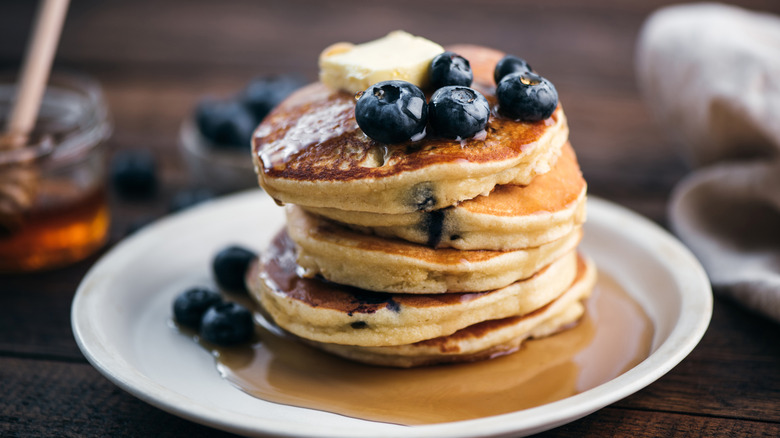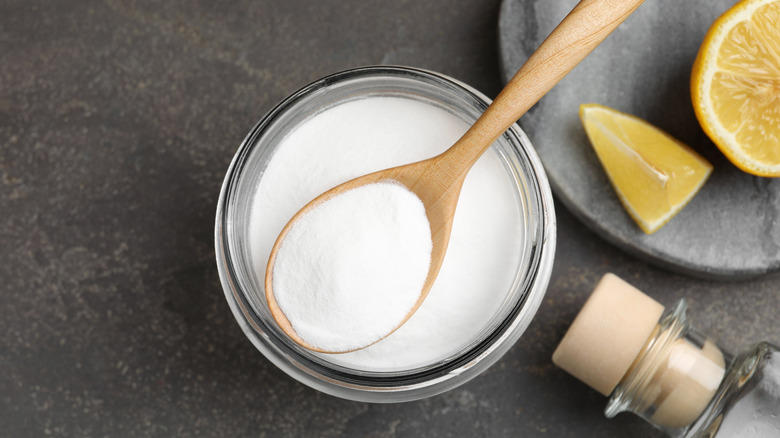This Simple Mistake Is Ruining Your Pancakes
If you've ever wondered why you sometimes end up with heavy, dense pancakes, there may be a reason. There's a simple error that is one of the most common mistakes people make when making pancakes, and it involves the freshness of your ingredients. The good news is that it's easy and inexpensive to fix.
Using old ingredients, especially baking powder, can ruin a recipe. Baking powder is a leavening agent that gives lightness and lift to pancakes and other baked goods. However, over time, baking powder loses its ability to do its job, leaving your baked goods and pancakes heavy and unappetizing.
Baking soda, not to be confused with baking powder, is made up entirely of sodium bicarbonate. On the other hand, baking powder contains two ingredients: baking soda and a powdered acid such as cream of tartar. When exposed to liquid, these two ingredients combine to produce a chemical reaction, creating carbon dioxide in the form of bubbles. Those bubbles are what make the difference between a light and fluffy pancake and one that's limp and, well, flat as a pancake.
The shelf life of baking powder and baking soda
Baking soda typically remains fresh for up to 18 months when unopened. However, you'll want to replace it after about six months once the container is in use. Not to worry if you're out of baking soda. You can substitute 3 teaspoons of baking powder for 1 teaspoon of baking soda. Self-rising flour or whipped egg whites can work in a pinch as well.
The average shelf life for an opened can of baking powder is three months. It should be stored in a dry place in an airtight container to prevent moisture from affecting it. Even an unopened can is subject to humidity and should be tossed after six months. Thankfully, baking powder is one of those inexpensive pantry staples so replacing it often won't make a dent in your food budget.There's an easy way to determine if your baking powder is still good. Simply add a half-cup of boiling water to a teaspoon of baking powder. If it fizzes, it's still active. If nothing happens, discard it.
If you're in the middle of a recipe and discover your baking powder has expired, there's no need to worry. You can make your own by combining two parts cream of tartar with one part baking soda. If you're making it to keep on hand, add one part cornstarch to the mixture to help control moisture and extend the life of your baking powder.

